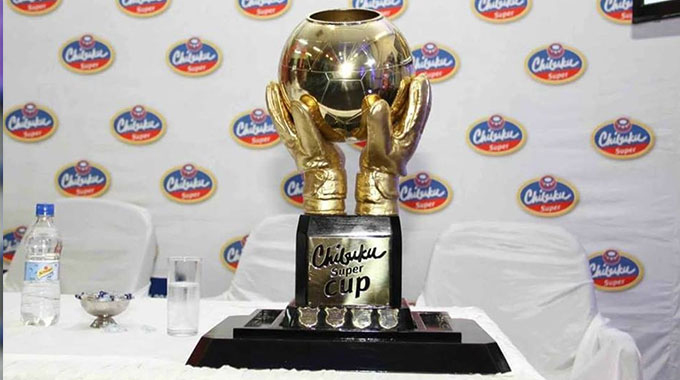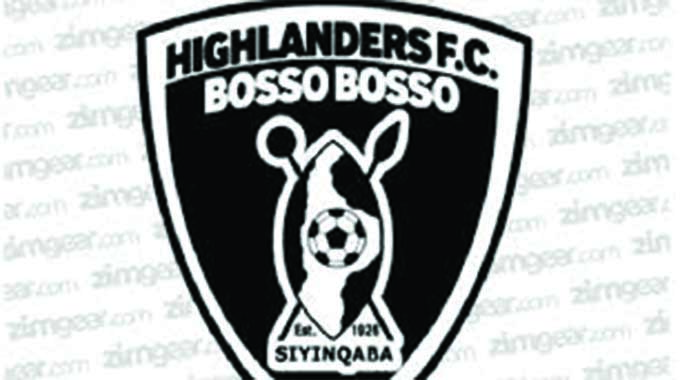
The Sunday News

PETER Bepe, better known as Bhebhe in Bulawayo and among Highlanders FC supporters was such a brilliant striker that at Chibuku Shumba, he made legendary Peter Nyama sit it out on the bench.
He was such a high calibre forward that he was in the draft Rhodesia national team for the final World Cup qualifier against Australia in 1969. Bepe remembers some of the strikers that were called up and in the list is Bobby Chalmers, a former Durban City striker who died in South Africa last week, Gibson Homela, George Shaya, Topsy Robertson, Itai Chieza, Twyman Ncube and Chris Mhlanga.
He did not make the cut for the three matches. The former Bosso striker admits that those like Homela and Chalmers who made the cut and started were good strikers and probably deserved to be in the side alongside Shaya.

Chibuku Super Cup
“Competition was very fierce for places. We were all red hot. I remember Chalmers and Homela being the lead strikers after making the grade. They started, guys like Twyman Ncube, Topsy and Itai were very good too,” said the former striker.
At the time of his national team call-up he was playing for Sables in Harare, then known as Salisbury. Bepe was born in Inyanga in the Eastern Highlands on 2 February 1947 and attended Sakubva Primary School.
His football journey is the all familiar street soccer to boys’ clubs grooming. After his Standard Six, Bepe’s parents sent him to Bernard Mizeki Mission where his football journey would get another lift by rubbing shoulders with some of the famous Chiezas, Hector, George, Isaac and Tendai and Malawian Alex Masanjala who played himself to legendary status at Mangula.
In 1967 after leaving Bernard Mizeki, he opted for the bright lights of then Salisbury where he found employment at Castle Brewery. The same year Castle Lions were formed and the brewery moved from the capital’s Cameron Street to the present site at Manchester Road, Southerton.
The club with a number of players employed by Rhodesia Breweries and coached by Roy Shelter, played against Mhlanga’s Nimfa Rovers, Metal Box, Rufaro Rovers and Inkomo Barracks.
A year later Sables All Stars got to be bringing in together players from the capital and those that had played for Bulawayo Sables.
“We had players like Simon Machaya, Tendai Chieza, Ronny Chizema, Elisha Rwodzi, Patrick Makuvire and Philemon Dube in the new team with most guys coming from Bulawayo. We played in the same league with Salisbury Callies, Arcadia, Rio Tinto, Wankie and Mashonaland United,” said Bepe.
He said a Super Eight (8) League was formed by John Madzima who was vice-president of the Rhodesia National Football Association under Rhodesia National Football League.
He said with the formation of the league his game continued to improve and he moved to Chibuku Shumba.

“Peter Nyama was such a prolific goal scorer. Believe me, I would make him sit on the bench at times because I was equally good. It was not easy to catch the attention of national team coach Danny Maclenan, but because I was good I managed to at a time when we had as a country a fine and very competitive crop of goal scorers who were a nightmare to defenders,” said the man who feared no defender.
He says at that time the country had very good defenders in the form of Shadreck Ngwenya, James Nxumalo, Daniel and Amos Rendo.
His brilliance won him the favour of radio football commentators like Collet Bahlangene, Harry Nleya, Amon Nyamambi, Leonard Masiye, Bethuel Bethule, Webster Shamu and Jonathan Mutsinze.
By 1969 he was now a mature product and staking a place among football immortals like Peter Haddon, Topsy, Chalmers, Homela, Stewart Gilbert, Stephen Chimedza, Joseph Agayi, John Madondo, Shadreck Ngwenya, Philemon Tigere, Obadiah Sarupinda, Rob Jordan, Itai Chieza, Tendai Chieza, Isaac Chieza, Chris Mhlanga and Twyman Ncube, a majority of whom made it into the Rhodesia squad for the matches against Australia.
Rhodesia had been thrown a lifeline to appear in the World Cup finals hosted by Brazil after African countries boycotted the qualifiers.
Australia had beaten South Korea in an Australia-Asia play off.
With Highlanders campaigning in the Second Division after a dismal performance in their first-ever national league flirtation in 1971 in which they finished with a paltry seven points, journalists like Nleya, Bethule, Nyamambi and Masiye influenced Bepe to join Highlanders in the middle of 1972.
“I was met at the Mpopoma Train Station by manager/coach Silas Ndlovu. It was a good reception and I was taken to Mbuyazwe Flats where I stayed for a while before moving to Y27 where I stayed with a Mr Nyathi who taught at St Bernard’s,” said Bepe.
He said Highlanders fans called him Bhebhe instead of Bepe, a clan found in Manicaland.
Bepe spoke highly of a Mr Thodlana who worked at Rhodesia Railways, Tafi Moyo, Highlanders FC’s all-weather friend since 1934, Mtshena Sidile, a Matshazi and Alfred Zwambila. He said these men took care of the club and players’ welfare needs.
When he arrived he said there were players like Ananias Dube, Victor Dliwayo, Lawrence Phiri, Nehemiah Dube, Tennyson Mloyi, Trust Moyo, Billy Sibanda, Bha Sibanda, Kainot Luphahla, Willie Luphahla, Josiah Nxumalo, Andrew Scrupata Jele, Edward “Sales House” Dzowa, Benjamin Mpofu and Tommy Masuku.

Yester year great number 9 today
His arrival appeared to have given Highlanders’ attack the right impetus towards fighting back to gain promotion into the First Division as he scored at an alarming rate of almost a goal per game.
“I arrived round about July 1972 and I remember scoring in almost all the matches we played,” said Bepe.
Highlanders finished second to Rangers and got a lifeline when the national league was split into North and South Region Leagues. They earned a berth in the elite league.
Bepe’s best was yet to come.
The year 1973 saw the best of Bosso, previously an unknown quantity that had in 1963 stubbornly refused to join the framework of association football instead opting to remain in the Bulawayo African (Amateur) Football Association.
Clever signings of Tymon Mabaleka who would replace Tommy Masuku at Number Eight with the latter moving to right wing, Cavin Duberley and Boet Van Ays brought a new dimension to the Bosso game.
“Those were the best years of my football, I got some very good supply from Mabaleka, Masuku and Duberley. I scored for fun and I remember the Chibuku Cup final win, 3-0 against Mangula like yesterday. It was a great game by Highlanders, we were a hard working lot with a good coach and a motivating support base,” said Bepe.
In that year Highlanders won the Chibuku Trophy and the regional league title only to succumb 4-1 to Metal Box led by razor sharp Wonder Chisetera and Oliver Kateya in attack.

Highlanders F.C
In 1974 more players arrived and the attack now had Itai Chieza, Isaac Mafaro in the mix, Stanley Nyika in midfield, Chutika Tembo, Bruce Grobbelaar and Chutika Tembo.
“Silas made competition for places a must and we were a very, very strong side that destroyed all that came up against us,” said Bepe whose side went on to win the national league title and the regional gong of 1974.
At the end of the year Bepe quit Bosso and played for his work side Sables with former Zimbabwe Saints shot-stopper Eddie Frano, Edward Harris Ndlovu, Makuvire and Rwodzi the father of former Saints stars Innocent, Garikayi and Zenzo.
He speaks of his youth fondly and the days he was in the Mutare Select known as Green Bombers where he played with the likes of Dave Mhlanga, Garcia Ngulube, Sbare Cecilia Collins, Clifford Museta and Alford Museta.
This was a combined team of the best players in Mutare then known as Umtali.
That team would play against similar sides from Harare and Bulawayo.
“Yellow Peril was the Salisbury Peak and had the likes of Sarupinda, Barnes and Master Dribbler Dusty King who had one hand.
“Bulawayo was quite good with 303 Maruma, Nesbert Makosi, William ‘Gorilla’ Chirwa, Edward Dzowa and Edward ‘Magungubala’ Dlamini,” he said.
Bepe who got widowed in 2015 was married to Elizabeth Sibanda and they had five children.
He lives a quiet life in Tshabalala and was forced into retirement by injury in 1983 which affected his spinal cord.
Last week he was happy to meet the family of his former teammate Tommy Masuku at the winger’s memorial service.



